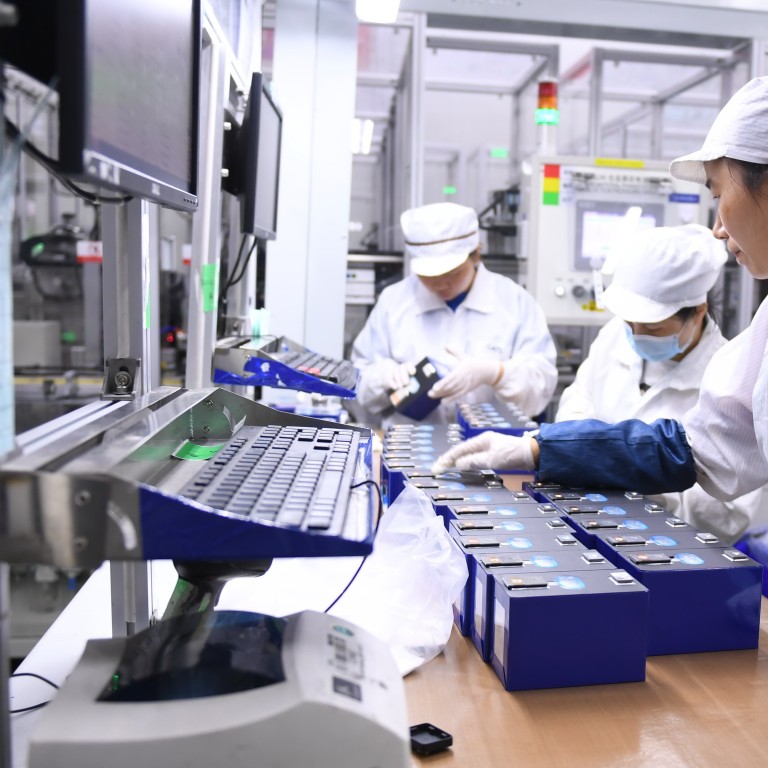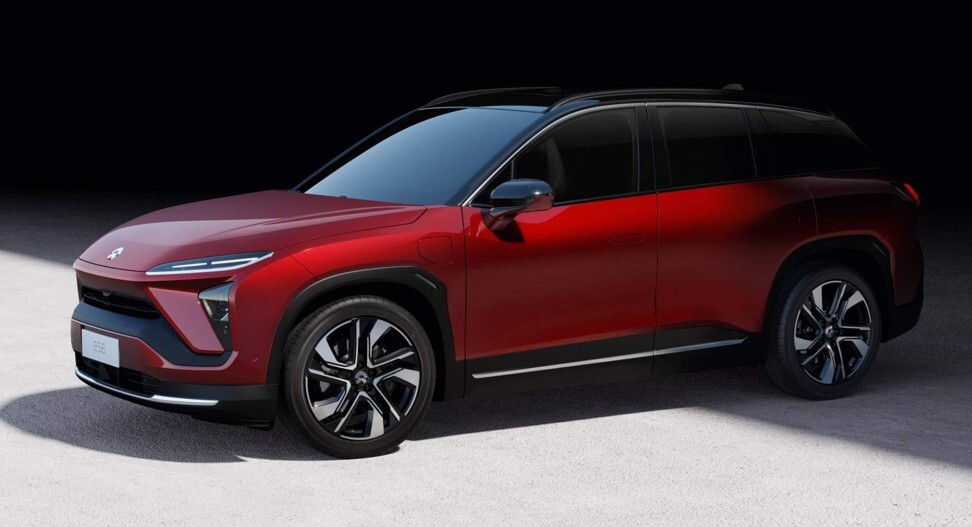
China’s top electric-car battery producer, Nio to team up for battery-swap venture as industry sales forecast to triple by 2025
- Contemporary Amperex, Nio and two others to form a battery-swap venture to help lower initial cost of EV ownership
- New venture to charge subscribers 980 yuan a month for convenience and peace of mind, in case battery goes flat on long-distance driving
Contemporary Amperex Technology Ltd (CATL), which owns the biggest EV battery production capacity, will form a venture called Wuhan Weineng Battery Asset with an initial capital of 800 million yuan (US$115.4 million) to lease battery packs to car owners.
It will take an equal stake in the business with US-listed EV maker Nio, financial services group Guotai Junan International and Hubei Science Technology Investment Group, according to a company statement.
The venture underscores optimism in the market as the industry forecast a tripling in sales of NEVs by 2025 despite a recent sales hiccup caused by the coronavirus pandemic. Chinese policymakers have also dangled incentives to spur sales and help shore up a rebound in domestic consumption.

“The new battery-swap company will benefit drivers as it lowers the prices for car purchases and eases driving range anxiety,” CATL said in a statement. “The BaaS (battery as a service) model will accelerate the electrification drive in the automotive industry.”
The model allows customers to buy an electric car while subscribing to a separate battery-leasing plan for a fee. This can help lower the upfront cost of owning an electric car by about 20 per cent, it said.
For example, the price of a Nio ES6 SUV starts at 358,000 yuan that comes with a 70 kilowatt-hour (KWH) battery pack. The car would cost 287,000 yuan under the CATL’s BaaS model, plus a battery-leasing fee of 980 yuan a month.
The battery billionaire who holds the key to Tesla’s future in China and Elon Musk’s global electric-car dominance
“This is a different model from most of the existing market players,” said Davis Zhang, a senior executive at Suzhou Hazardtex, an energy-solution provider to manufacturing companies. “Financially, it can lower the cost for consumers to own an EV, but it needs a complete network of swap stations.”
The China Association of Automobile Manufacturers forecast that NEV sales on the mainland would hit 1.1 million units this year, a 9 per cent decline from 2019, suggesting a pickup in sales momentum from 393,000 units sold in the first half. China targets sales to reach 3 million units in 2025, making it the largest NEV market.
Nio, listed on the New York Stock Exchange, is viewed as one of the challengers to Tesla Inc. Nio posted a loss of 1.18 billion yuan in the second quarter, narrowing 64 per cent from a year ago.
“The BaaS model has long been planned with our unique battery swap technologies,” said William Li Bin, founder and chairman of Nio. Nio itself has established 143 battery-swapping stations across 64 mainland cities, he added.
CATL’s products are in almost every major global auto brand, and it started supplying batteries to Tesla’s Shanghai plant last month. Tesla’s Model 3, built in its Gigafactory plant in Shanghai, currently dominates sales in the onshore market.
Beijing now grants buyers a 25,000 yuan subsidy for EV cars with a driving range of more than 400km to spur sales in the industry and the economy.

